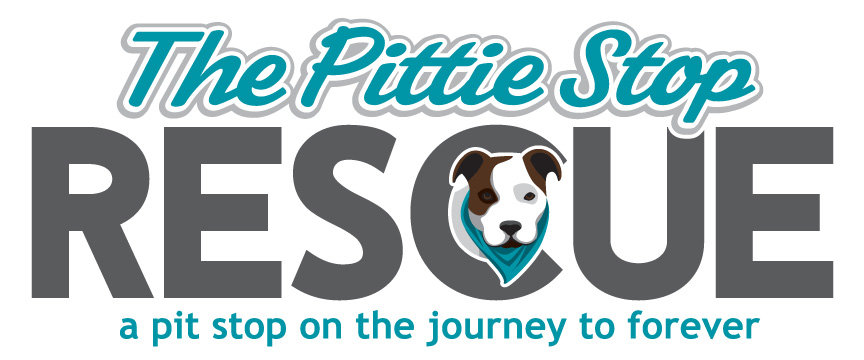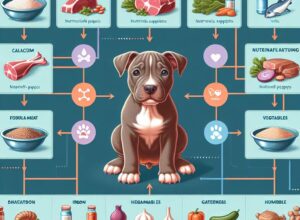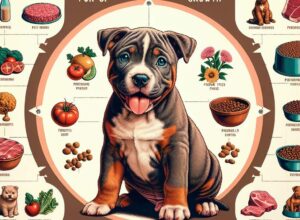
Key Takeaways
-
Grain-free diets can benefit pitbull puppies with grain allergies or sensitivities.
-
Transitioning to a grain-free diet should be done gradually to avoid digestive upset.
-
Grain-free diets are often higher in protein but may lack certain nutrients found in grains.
-
It’s crucial to choose a grain-free diet that is well-balanced and meets all of your puppy’s nutritional needs.
-
Consulting with a veterinarian before switching your puppy to a grain-free diet is highly recommended.
The Choice Is Yours: Grain-Free Diet for Your Pitbull Puppy
As a pet owner, you’re always looking for the best ways to keep your furry friend healthy and happy. When it comes to feeding your pitbull puppy, you might be considering a grain-free diet. This choice could be driven by concerns over allergies, digestive health, or simply the desire to provide what seems like a more ‘natural’ diet. But before you make the switch, let’s dive into what a grain-free diet really entails and whether it’s the right fit for your pup.
Does Your Puppy Really Need Grain-Free?
First things first, let’s address the question of necessity. Grain-free diets have gained popularity, partly due to the belief that they’re closer to a dog’s ancestral diet. However, it’s essential to recognize that dogs have evolved to digest various foods, including grains. Unless your pitbull puppy has a diagnosed grain allergy or intolerance, grains can be a healthy part of their diet.
That said, if you’ve noticed signs of food sensitivities, such as itching, ear infections, or gastrointestinal issues, it might be worth exploring a grain-free option. In these cases, a diet change could lead to improved health and comfort for your puppy.
Addressing Common Grain-Free Myths
There are quite a few misconceptions floating around about grain-free diets. One common myth is that grain-free automatically means low carbohydrate. In reality, many grain-free dog foods substitute grains with other carb sources like potatoes or legumes. It’s also often assumed that grain-free diets are inherently healthier, but the truth is, the overall balance of nutrients is what matters most for your pup’s health.
Digging Into the Advantages
Allergy Management
-
Identifying allergies: If your puppy shows signs of an allergic reaction, consult your vet to determine if grains could be the culprit.
-
Choosing the right food: Select a grain-free diet that uses alternative carb sources your puppy is not allergic to.
-
Monitoring the change: Keep an eye on your puppy’s reaction to the new diet and report any health changes to your vet.
For some pitbull puppies, grains can trigger allergic reactions, leading to uncomfortable symptoms. If you’ve confirmed that grains are the problem, switching to a grain-free diet might just be the solution. You’ll want to watch your puppy’s health and behavior closely after making the switch, as improvements can indicate that you’ve made the right dietary choice.
Smoother Digestion
If your pitbull puppy has a sensitive stomach, grains might be a bit tough to handle. Some puppies digest grain-free diets more easily, leading to less gas, firmer stools, and overall better gastrointestinal health. Remember, though, that every puppy is different. What works for one may not work for another, so it’s all about finding what suits your puppy’s unique system.
Packed with Protein
Grain-free diets often boast higher protein levels, which can be fantastic for your growing pitbull puppy. Protein is essential for muscle development and overall growth, so a grain-free diet can be a solid choice, especially for active puppies. Just make sure the protein sources are high-quality and appropriate for your puppy’s life stage.
Now, let’s take a short pause here. Remember, the decision to go grain-free isn’t one to be taken lightly. It requires careful consideration and should be made with your puppy’s health as the top priority. Stay tuned for more insights on the potential pitfalls of grain-free diets and how to make the transition if you choose to go that route.
Navigating the Pitfalls
Cost Considerations
Let’s talk money. Generally, grain-free dog foods can be more expensive than their grain-containing counterparts. Why? Because the ingredients used as substitutes for grains, such as sweet potatoes or peas, often cost more. As a responsible pet owner, you need to weigh the benefits against the financial impact. If your budget allows for the extra expense and your puppy genuinely needs a grain-free diet, it could be a worthy investment in their health.
Potential Health Risks Explored
While a grain-free diet can be beneficial for some puppies, it’s not without its risks. Recent studies have raised concerns about a potential link between grain-free diets and dilated cardiomyopathy (DCM), a type of heart disease. This doesn’t mean that all grain-free diets will lead to health issues, but it does underscore the importance of choosing a diet that’s well-rounded and formulated based on scientific research. Always consult with your vet to ensure the grain-free food you’re considering meets all your puppy’s nutritional needs.
Finding Balance in Nutrition
Whether you opt for grain-free or not, the key is balance. Your puppy needs a diet that provides all the necessary nutrients for their growth and health. This includes the right amounts of proteins, fats, carbohydrates, vitamins, and minerals. It’s not just about removing grains; it’s about making sure that what you’re serving up instead is just as nutritious, if not more so. Always look for the Association of American Feed Control Officials (AAFCO) statement on dog food packaging to ensure the food is nutritionally complete.
Making the Switch: Is It Right for Your Pitbull Puppy?
Identifying Signs Your Puppy May Benefit
If you’re seeing signs like chronic itching, digestive distress, or recurrent ear infections, these could be indicators that your puppy might benefit from a grain-free diet. However, these symptoms can also be related to other issues, so it’s important to work with your vet to rule out other causes before making a dietary switch.
Transition Tips and Tricks
-
Start slow: Mix a small amount of grain-free food with the current food, gradually increasing the proportion over a week or so.
-
Monitor closely: Watch for any changes in your puppy’s stool consistency, appetite, and overall behavior.
-
Be patient: Some puppies might take a little longer to adjust to a new diet, so give it time.
Transitioning to a grain-free diet isn’t something you should do overnight. It’s a gradual process that should be done thoughtfully to avoid upsetting your puppy’s stomach. A sudden switch can lead to diarrhea, vomiting, or a refusal to eat, so take it slow and steady.
When to Stick with Grains
If your puppy is thriving on a diet that includes grains, there’s no need to make a change. Grains provide valuable nutrients and are a good source of energy. Plus, they can be beneficial for puppies who need more fiber in their diet. If you’re unsure, always err on the side of sticking with what’s working unless you have a compelling reason to switch.
FAQ
Got questions? You’re not alone. Here are some answers to common queries about grain-free diets for pitbull puppies.
What nutrients could my pitbull puppy miss out on with a grain-free diet?
Grains are more than just fillers; they contain essential nutrients that are beneficial to your puppy’s health. For instance, whole grains are a great source of fiber, which aids in digestion. They also provide vitamins, such as B vitamins, which are crucial for energy metabolism, and minerals like iron, selenium, and magnesium. When you opt for a grain-free diet, it’s important to ensure that your puppy still receives these nutrients from other sources. Quality grain-free foods are formulated to be nutritionally complete, but always check the label or consult with your vet to be certain.
How does a grain-free diet affect my puppy’s energy levels?
Carbohydrates are a primary source of energy for dogs, and grains are one of the common sources of carbs in dog food. When you switch to a grain-free diet, the carbohydrates must come from other ingredients, such as potatoes, peas, or lentils. The key is to maintain a balanced intake of nutrients, including carbohydrates, to ensure your pitbull puppy has the energy they need to grow and play. If done correctly, a grain-free diet should not negatively impact your puppy’s vigor or vitality.
Can grain-free diets contribute to weight management?
It’s a common misconception that grain-free diets are inherently lower in calories and can help with weight management. However, this isn’t always the case. Some grain-free diets may actually have higher calorie content due to increased levels of fat or protein. To manage your pitbull puppy’s weight effectively, focus on the total calorie intake and the quality of ingredients, rather than solely on whether the food is grain-free. Portion control and regular exercise are also key components of a healthy weight management plan.
Are there specific breeds of pitbull puppies that benefit more from grain-free diets?
There’s no one-size-fits-all answer to this question, as dietary needs can vary widely even within a breed. However, if your pitbull puppy has shown signs of grain sensitivity or allergy, they might benefit from a grain-free diet. Some dogs may have a genetic predisposition to food sensitivities, but it’s essential to base the decision on observed health issues and veterinary advice rather than breed alone.
How often should I review and adjust my pitbull puppy’s diet?
Puppies grow and change rapidly, and so do their nutritional needs. It’s a good practice to review your puppy’s diet at regular intervals, such as during routine veterinary check-ups. Generally, every three to six months is a good rule of thumb, but you may need to make adjustments sooner if you notice changes in your puppy’s health, weight, or energy levels. As your pitbull transitions from puppyhood to adulthood, their dietary needs will change, and you’ll need to adapt their diet accordingly.
In conclusion, while grain-free diets can be beneficial for some pitbull puppies, they are not inherently superior to diets that include grains. The most important factor is to provide a balanced diet that meets all your puppy’s nutritional needs. Whether you choose a grain-free diet or not, always consult with a veterinarian to ensure the food you select promotes your puppy’s health and well-being. Armed with the right knowledge and guidance, you can make informed decisions that will help your pitbull puppy thrive.



